カント『純粋理性批判』から『永遠平和のために』主要著作と反ユダヤ主義
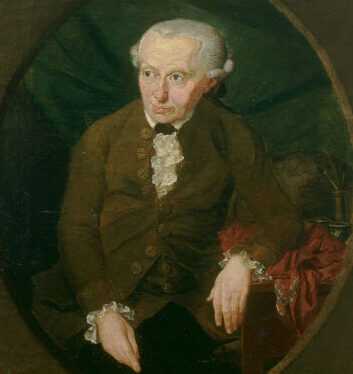
Kant’s Major Works from “Critique of Pure Reason” to “Perpetual Peace” and Anti-Semitism
イントロダクション
イマヌエル・カントは、18世紀ドイツの哲学者として「純粋理性批判」や「永遠平和のために」といった著作で知られています。
彼の哲学は、現代の倫理学や政治哲学に多大な影響を与えました。
「純粋理性批判」(1781年)は、認識論と形而上学の基礎を再構築し、理性の限界と可能性を探求するもので、カントの代表作です。
一方、「永遠平和のために」(1795年)は、国際平和の理論を展開し、国家間の恒久的な平和を目指す提案を含んでいます。
しかし、カントの業績には光と影が存在します。
彼は時折、反ユダヤ主義的な発言もしており、その思想の一部は批判の対象となっています。
カントの哲学とその社会的影響を総合的に理解するためには、彼の主要著作を深く掘り下げると同時に、彼の時代背景や個人的な思想も考慮する必要があります。
この記事では、カントの主要著作とその影響、そして彼の反ユダヤ主義について詳しく探っていきます。
Introduction
Immanuel Kant, an 18th-century German philosopher, is renowned for his works such as “Critique of Pure Reason” and “Perpetual Peace.”
His philosophy has profoundly influenced modern ethics and political philosophy.
“Critique of Pure Reason” (1781) is Kant’s seminal work, reconstructing the foundations of epistemology and metaphysics while exploring the limits and capabilities of reason.
On the other hand, “Perpetual Peace” (1795) develops a theory of international peace and proposes measures aimed at achieving lasting peace among nations.
However, Kant’s legacy is not without its shadows.
At times, he made anti-Semitic remarks, and some aspects of his thought have faced criticism.
To comprehensively understand Kant’s philosophy and its societal impact, one must delve deeply into his major works while considering his historical context and personal beliefs.
This article will examine Kant’s principal works, their influence, and his anti-Semitism in detail.

The Kant Statue in Kaliningrad, Russia
カントの前批判期:影響と発展
イマヌエル・カントは、18世紀のドイツ哲学者であり、彼の「前批判期」はその後の哲学的発展に大きな影響を与えました。
この時期、カントは『純粋理性批判』や『実践理性批判』などの重要な著作に至るまでの基礎を築いています。
彼の初期の著作には、『人倫の形而上学』や『永遠平和のために』といった作品も含まれ、これらは後の「批判哲学」に大きな影響を与えました。
カントの前批判期には、彼の思想が徐々に成熟していく過程が見られます。
例えば、彼の自然科学への関心やニュートンの物理学の影響が顕著です。
この時期には、反ユダヤ主義的な社会環境も影響を与えており、カントの倫理観や社会観に反映されています。
彼の前批判期の研究は、後の『判断力批判』や『純粋理性批判』における理論の基盤を形成しました。
このように、カントの前批判期は彼の哲学的な発展において欠かせない時期であり、後の批判哲学の礎となっています。
Kant’s Pre-Critical Period: Influences and Development
Immanuel Kant, an 18th-century German philosopher, had a “pre-critical period” that significantly influenced his later philosophical developments.
During this time, Kant laid the groundwork for his major works like the “Critique of Pure Reason” and the “Critique of Practical Reason.”
His early writings, including “Metaphysics of Morals” and “Perpetual Peace,” were instrumental in shaping his later critical philosophy.
In the pre-critical period, we see the gradual maturation of Kant’s thoughts, notably his interest in natural science and the influence of Newtonian physics.
This era was also marked by an anti-Semitic societal context, which impacted Kant’s ethics and social views.
Kant’s studies during this period formed the theoretical foundation for his later works, such as the “Critique of Judgment” and the “Critique of Pure Reason.”
Thus, Kant’s pre-critical period is essential to understanding his philosophical development and serves as the cornerstone for his later critical philosophy.
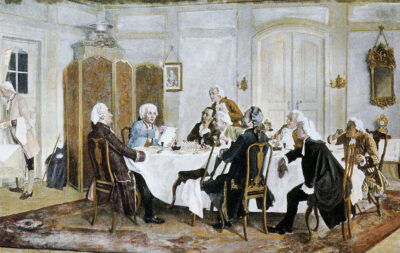
カントの批判期:『純粋理性批判』と『実践理性批判』
イマヌエル・カントは18世紀のドイツ哲学者であり、彼の「批判期」における著作は哲学史において重要な位置を占めます。
1781年に発表された『純粋理性批判』は、認識論と形而上学における基本問題を扱い、理性の限界と可能性を探求しました。
カントは感覚と理性の役割を明確に区別し、知識がどのように形成されるかを解明しました。
続いて1788年に発表された『実践理性批判』では、倫理学の基盤を探求し、道徳法則の根拠を明らかにしました。
カントは「善意志」と「義務」の概念を中心に据え、人間の行動が道徳的に正しいかどうかを判断する基準を提供しました。
カントの批判期はさらに『判断力批判』(1790年)や『人倫の形而上学』、『永遠平和のために』などの著作によっても特徴付けられます。
彼の思想は反ユダヤ主義に対する批判的視点も含み、現代においても多くの議論を引き起こしています。
Kant’s Critical Period: “Critique of Pure Reason” and “Critique of Practical Reason”
Immanuel Kant, an 18th-century German philosopher, made significant contributions to the history of philosophy during his “critical period.”
Published in 1781, “Critique of Pure Reason” addresses fundamental issues in epistemology and metaphysics, exploring the limits and capabilities of reason.
Kant distinguished between the roles of sensation and reason, clarifying how knowledge is formed.
Following this, in 1788, he released the “Critique of Practical Reason,” which delved into the foundations of ethics and clarified the basis of moral law.
Kant focused on concepts like “good will” and “duty,” providing criteria to determine the moral correctness of human actions.
Kant’s critical period is also marked by other works such as “Critique of Judgment” (1790), “Metaphysics of Morals,” and “Perpetual Peace.”
His ideas include a critical perspective on anti-Semitism, sparking much debate even in contemporary times.
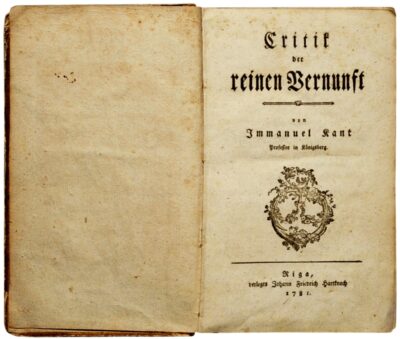
Kant, Immanuel: A Critique of Human Unhappiness. Riga: J. F. Hartknoch, 1781, 856 pages, first edition.
カントの認識論と倫理学
イマヌエル・カントは、18世紀ドイツの哲学者であり、彼の「認識論」と「倫理学」は哲学史において重要な位置を占めています。
『純粋理性批判』では、人間の認識能力を批判的に検討し、「アプリオリな認識」と「経験的な認識」の区別を明確にしました。
カントは、知識が主観と客観の相互作用によって形成されると主張しました。
一方、『実践理性批判』では、道徳の基盤を探求しました。
彼は「道徳法則」をアプリオリなものとして位置付け、「善意志」を中心に据えました。
カントの倫理学は、行為の結果ではなく、行為そのものの意図を重視します。
『人倫の形而上学』では、人間の自由と道徳的責任についてさらに深く掘り下げました。
また、『永遠平和のために』では、国際関係における平和の理想を説きました。
この著作は、現代の国際法や国際関係論に大きな影響を与えています。
Kant’s Epistemology and Ethics
Immanuel Kant, an 18th-century German philosopher, made significant contributions to epistemology and ethics in the history of philosophy.
In “Critique of Pure Reason,” he critically examined human cognitive abilities, clearly distinguishing between “a priori knowledge” and “empirical knowledge.”
Kant argued that knowledge is formed through the interaction between the subjective and the objective.
On the other hand, in “Critique of Practical Reason,” he explored the foundation of morality.
He positioned the “moral law” as an a priori concept and centered his ethics around “good will.”
Kant’s ethical theory emphasizes the intention behind actions rather than their consequences.
In “Metaphysics of Morals,” he delved deeper into human freedom and moral responsibility.
Furthermore, in “Perpetual Peace,” he advocated for the ideal of peace in international relations.
This work has greatly influenced modern international law and theories of international relations.
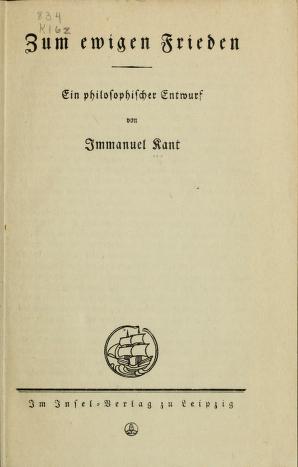
カントの思想は、反ユダヤ主義とも対峙しており、彼の哲学は人間の尊厳と普遍的な道徳を強調します。
イマヌエル・カントは18世紀のドイツの哲学者であり、彼の歴史哲学、法哲学、政治哲学は今日でも広く研究されています。
まず、『純粋理性批判』では人間の認識能力を探求し、知識の限界を明らかにしました。
続いて『実践理性批判』では道徳法則の基盤を示し、自由意志の重要性を強調しました。
『判断力批判』では美と崇高を論じ、人間の感性と理性の調和を探りました。
カントの法哲学は『人倫の形而上学』で明確にされ、個人の権利と義務を体系的に論じました。
彼は法の普遍性と正義の原則を重視し、これが現代の法理論に大きな影響を与えています。
政治哲学においては『永遠平和のために』で国際関係の理想を描き、戦争の根絶を目指しました。
彼の反ユダヤ主義に関する議論も重要であり、当時の社会的背景と彼の思想の矛盾を理解するために欠かせません。
『永遠平和のために』:カントの宗教哲学
イマヌエル・カントの『永遠平和のために』は、彼の宗教哲学の集大成とも言える重要な著作です。
1795年に発表されたこの作品は、国際的な平和を実現するための具体的な提案を含んでいます。
カントは『純粋理性批判』や『実践理性批判』、『判断力批判』といった哲学的な著作を通じて、人間の理性と道徳の関係を探求しました。
『永遠平和のために』では、彼の道徳哲学が国際政治に適用され、法的な枠組みの中で平和を維持するための理論が展開されています。
特に注目すべきは、カントが提唱した「平和のための予備条項」です。
これには、常備軍の廃止や国家間の信義を守ることが含まれています。
また、カントは人権の尊重と民主主義の重要性を強調し、これが真の平和の基盤であるとしました。
彼の思想は、後の国際連合や国際法の基礎にも影響を与えています。
さらに、カントは反ユダヤ主義に対しても強い立場を取っており、すべての人々が平等であるべきだと主張しました。
彼の宗教哲学は、倫理と信仰の調和を目指し、普遍的な道徳原理を追求しています。
これにより、カントの思想は現代においても多くの示唆を与え続けています。
Kant’s philosophy confronts anti-Semitism, emphasizing human dignity and universal morality.
Immanuel Kant, an 18th-century German philosopher, has his works in the philosophy of history, law, and politics still widely studied today.
In “Critique of Pure Reason,” he explored human cognitive abilities and the limits of knowledge.
In “Critique of Practical Reason,” he laid the foundation for moral law and emphasized the importance of free will.
“Critique of Judgment” discusses beauty and the sublime, seeking harmony between human sensibility and reason.
Kant’s philosophy of law is clearly articulated in “Metaphysics of Morals,” where he systematically discussed individual rights and duties.
He emphasized the universality of law and the principles of justice, significantly influencing modern legal theory.
In political philosophy, “Perpetual Peace” outlines an ideal for international relations, aiming for the abolition of war.
The discussion on his anti-Semitism is crucial for understanding the social context and contradictions in his thought.
Perpetual Peace: Kant’s Philosophy of Religion
Immanuel Kant’s “Perpetual Peace” is a significant work that encapsulates his philosophy of religion.
Published in 1795, this work includes concrete proposals for achieving international peace.
Through works like “Critique of Pure Reason,” “Critique of Practical Reason,” and “Critique of Judgment,” Kant explored the relationship between human reason and morality.
In “Perpetual Peace,” his moral philosophy is applied to international politics, developing a theory for maintaining peace within a legal framework.
Notably, Kant proposed “preliminary articles for perpetual peace,” including the abolition of standing armies and adherence to good faith between nations.
He also emphasized the importance of human rights and democracy as the foundation for true peace.
Kant’s ideas influenced the foundations of the United Nations and international law.
Furthermore, Kant took a strong stance against anti-Semitism, asserting that all people should be treated equally.
His philosophy of religion aims to harmonize ethics and faith, pursuing universal moral principles.
Thus, Kant’s ideas continue to provide significant insights in contemporary discussions.
カントと反ユダヤ主義:意義と影響
イマヌエル・カントは18世紀のドイツの哲学者であり、『純粋理性批判』や『実践理性批判』などの著作で知られています。
カントの哲学は「啓蒙主義」の重要な一部を構成し、理性と道徳を強調しました。
しかし、彼の思想には反ユダヤ主義的な側面も含まれていました。
カントはユダヤ教を「理性の宗教」と対立するものと見なしており、ユダヤ人を「道徳的に劣っている」と考えていました。
このような見解は、後の反ユダヤ主義の発展に影響を与えました。
『人倫の形而上学』や『永遠平和のために』などの著作でも、カントの反ユダヤ主義的な偏見が見られます。
彼の思想は、ユダヤ人の社会的地位や権利に対する否定的な見解を助長しました。
カントの反ユダヤ主義は、彼の哲学全体の中でどのように位置づけられるべきかという議論を引き起こしています。
彼の「理性」と「道徳」の理念が、特定の民族や宗教に対する偏見とどのように矛盾するのかを理解することは重要です。
Kant and Anti-Semitism: Significance and Impact
Immanuel Kant, an 18th-century German philosopher, is well-known for his works such as “Critique of Pure Reason” and “Critique of Practical Reason.”
Kant’s philosophy is a crucial part of the Enlightenment, emphasizing reason and morality.
However, his thought also includes anti-Semitic elements.
Kant viewed Judaism as opposed to a “religion of reason” and considered Jews to be “morally inferior.”
These views influenced the development of later anti-Semitism.
His anti-Semitic biases are also evident in works like “Metaphysics of Morals” and “Perpetual Peace.”
Kant’s ideas contributed to negative perceptions of the social status and rights of Jews.
His anti-Semitism has sparked debates about its place within his overall philosophy.
Understanding how his ideals of “reason” and “morality” conflict with his prejudices against certain ethnicities or religions is crucial.
カントの人間学と地理学
18世紀の哲学者「イマヌエル・カント」は、主に『純粋理性批判』や『実践理性批判』で知られていますが、彼の「人間学」と「地理学」にも注目すべき点があります。
カントは『人倫の形而上学』において、「道徳哲学」の基礎を築きました。彼の「人間学」は、個々の人間の行動や性格を研究し、社会全体の「倫理的な向上」を目指すものでした。
一方、「地理学」では、カントは『永遠平和のために』で「国際関係」や「平和」の重要性を説きました。
彼は「地理的条件」が「人間の文化や社会」に与える影響を深く考察しました。
また、カントは「反ユダヤ主義」に対しても批判的な立場を取り、全ての人間が「平等」であるべきだと主張しました。
これらの考えは、現代の「国際政治」や「倫理学」にも大きな影響を与え続けています。
カントの「人間学」と「地理学」は、彼の哲学全体を理解する上で欠かせない要素です。
Kant’s Anthropology and Geography
Immanuel Kant, an 18th-century philosopher, is primarily known for his works “Critique of Pure Reason” and “Critique of Practical Reason,” but his contributions to “anthropology” and “geography” are also noteworthy.
In “Metaphysics of Morals,” Kant laid the foundation for “moral philosophy.” His “anthropology” aimed to study individual human behavior and character to promote the “ethical advancement” of society.
In “geography,” particularly in “Perpetual Peace,” Kant emphasized the importance of “international relations” and “peace.”
He deeply examined how “geographical conditions” influence “human culture and society.”
Kant also took a critical stance against “anti-Semitism,” advocating for the “equality” of all people.
These ideas continue to significantly impact modern “international politics” and “ethics.”
Kant’s “anthropology” and “geography” are essential to understanding his overall philosophy.
カントの教育者としての視点と青少年教育批判
イマヌエル・カントは18世紀ドイツの哲学者であり、彼の教育観は「啓蒙主義」の理念に深く根ざしています。
カントは『純粋理性批判』や『実践理性批判』、『判断力批判』などで知られていますが、『人倫の形而上学』や『永遠平和のために』でも教育の重要性を説いています。
彼は教育を通じて「自由」と「道徳」の基盤を築くことができると考えました。
カントの青少年教育批判は、当時の教育制度が「機械的」かつ「権威主義的」であると指摘します。
彼は教育が単なる知識の詰め込みではなく、批判的思考と道徳的判断力を養うべきだと主張しました。
特に『純粋理性批判』では、理性の限界を認識することが重要であると説き、これが教育においても応用されるべきだと考えました。
また、カントは「反ユダヤ主義」に対しても批判的であり、教育が偏見を克服する手段であると信じていました。
彼の教育哲学は、現代の教育改革にも多大な影響を与え続けています。
Kant’s Perspective as an Educator and Critique of Youth Education
Immanuel Kant, an 18th-century German philosopher, deeply rooted his educational views in the ideals of Enlightenment.
Known for works like “Critique of Pure Reason,” “Critique of Practical Reason,” and “Critique of Judgment,” Kant also emphasized the importance of education in “Metaphysics of Morals” and “Perpetual Peace.”
He believed that through education, a foundation for “freedom” and “morality” could be established.
Kant’s critique of youth education pointed out that contemporary educational systems were “mechanical” and “authoritarian.”
He argued that education should not merely stuff knowledge, but should cultivate critical thinking and moral judgment.
In particular, in “Critique of Pure Reason,” he stressed the importance of recognizing the limits of reason, which he believed should also be applied in education.
Moreover, Kant was critical of “anti-Semitism” and saw education as a means to overcome prejudices.
His philosophy of education continues to exert significant influence on modern educational reforms.
カントの生活:規則正しさと趣味
イマヌエル・カントは1724年にプロイセン王国のケーニヒスベルクで生まれました。
彼の生活は「規則正しさ」で知られ、毎日同じ時間に起床し、散歩に出かける姿が街の人々にとっても有名でした。
カントの主要な著作には『純粋理性批判』、『実践理性批判』、『判断力批判』があります。
特に『純粋理性批判』は、彼の哲学の中核を成すもので、認識論における革新をもたらしました。
カントはまた、「趣味」にも関心を持っており、『判断力批判』では美学と目的論について詳述しています。
彼の生活は学問だけでなく、読書や音楽鑑賞も楽しむものでした。
晩年には『人倫の形而上学』や『永遠平和のために』など、道徳哲学と政治哲学に関する著作も発表しています。
カントの思想は反ユダヤ主義とも関連して議論されることがありますが、彼自身の哲学は普遍的な倫理を追求するものでした。
彼の生活と著作は、現在でも多くの哲学者や研究者に影響を与え続けています。
Kant’s Life: Discipline and Hobbies
Immanuel Kant was born in 1724 in Königsberg, Prussia.
Known for his disciplined life, Kant famously woke up at the same time every day and took walks, which became well-known sights in the town.
Among his major works are “Critique of Pure Reason,” “Critique of Practical Reason,” and “Critique of Judgment.”
In particular, “Critique of Pure Reason” forms the core of his philosophy, bringing innovations in epistemology.
Kant also had a keen interest in “hobbies,” discussing aesthetics and teleology in “Critique of Judgment.”
His life included not only scholarly pursuits but also enjoyment of reading and music.
In his later years, he published works like “Metaphysics of Morals” and “Perpetual Peace,” focusing on moral and political philosophy.
While discussions about Kant often touch on his relationship with anti-Semitism, his philosophy itself sought to pursue universal ethics.
His life and works continue to influence many philosophers and researchers today.
カントの独身主義
イマヌエル・カントは18世紀ドイツの哲学者であり、独身主義者としても知られている。
彼の独身主義は、哲学的な理由と生活スタイルに基づいている。カントは『純粋理性批判』や『実践理性批判』、『判断力批判』などの著作で有名であり、これらの作品は彼の思索の深さを示している。
特に『人倫の形而上学』では、道徳的な義務と自由について論じている。
カントの独身主義は、彼の哲学的な見解と密接に関連している。
彼は、結婚が個人の自由を制限する可能性があると考えた。
カントは、理性と道徳が人間の行動を導くべきだと主張し、そのためには独立した生活が重要だと考えた。
彼の独身主義は、個人の自由と道徳的な自己完結を追求するための選択だった。
また、カントは『永遠平和のために』という著作で、国際関係や平和についても論じている。
彼の思想は、現代の政治哲学にも影響を与えており、反ユダヤ主義に対する批判も行っている。
カントの独身主義は、彼の哲学的な信念と生活スタイルが一体となった結果であり、現代においてもその意義は大きい。
Kant’s Celibacy
Immanuel Kant, the 18th-century German philosopher, is also known for his celibacy.
His celibacy was grounded in both philosophical reasoning and lifestyle choices. Kant is renowned for works such as “Critique of Pure Reason,” “Critique of Practical Reason,” and “Critique of Judgment,” which showcase the depth of his contemplation.
In particular, in “Metaphysics of Morals,” he discusses moral duties and freedom.
Kant’s celibacy is closely intertwined with his philosophical perspectives.
He believed that marriage could potentially limit individual freedom.
Kant argued that reason and morality should guide human actions, necessitating an independent life.
His celibacy was a choice aimed at pursuing individual freedom and moral self-sufficiency.
Moreover, in his work “Perpetual Peace,” Kant discusses international relations and peace.
His ideas continue to influence contemporary political philosophy, and he also critiques anti-Semitism.
Kant’s celibacy resulted from the integration of his philosophical beliefs and lifestyle, and its significance remains profound today.
『人倫の形而上学』とその他の著作
イマヌエル・カントの『人倫の形而上学』は、彼の倫理学の中心的な著作です。
カントはこの作品で「道徳法則」を論じ、人間の行動が道徳的に正しいかどうかを判断する基準を提供しました。
これに関連する他の著作として、『純粋理性批判』、『実践理性批判』、『判断力批判』があります。
それぞれがカントの哲学体系を構築する重要な部分を担っています。
『純粋理性批判』では、認識論の問題に取り組み、我々が世界をどのように理解するかを探求しました。
『実践理性批判』は、倫理学に焦点を当て、「自由意志」と「道徳的義務」の関係を論じました。
『判断力批判』は、美学と目的論を扱い、自然と自由の調和を探求しました。
さらに、『永遠平和のために』は、国際関係における平和の理念を提唱し、現代の平和学にも影響を与えています。
カントの著作は、反ユダヤ主義に対する批判も含まれており、彼の思想は多岐にわたる分野に影響を与えています。
“Metaphysics of Morals” and Other Works by Immanuel Kant
Immanuel Kant’s “Metaphysics of Morals” stands as a central work in his ethical philosophy.
In this piece, Kant discusses the “moral law” and provides criteria for judging whether human actions are morally right.
Related works include “Critique of Pure Reason,” “Critique of Practical Reason,” and “Critique of Judgment.”
Each of these works plays a crucial role in shaping Kant’s philosophical system.
In “Critique of Pure Reason,” Kant tackles epistemological issues and explores how we understand the world.
“Critique of Practical Reason” focuses on ethics, discussing the relationship between “free will” and “moral duty.”
“Critique of Judgment” deals with aesthetics and teleology, investigating the harmony between nature and freedom.
Furthermore, “Perpetual Peace” advocates for the idea of peace in international relations, influencing modern peace studies.
Kant’s works also include critiques of anti-Semitism, and his philosophy continues to impact various fields.
I aimed to provide a fluid and clear translation that captures the essence of Kant’s philosophical contributions and the themes discussed in his major works. If you have any specific aspects you’d like to delve deeper into, feel free to ask!
カントの講義と影響
イマヌエル・カントは、18世紀ドイツの哲学者であり、その講義は多くの学生に大きな影響を与えました。
彼の代表作『純粋理性批判』は、認識の限界と条件を探求し、現代哲学の基礎を築きました。
続く『実践理性批判』では、道徳と倫理の問題に取り組み、理性に基づく道徳法則を提唱しました。
さらに『判断力批判』では、美と崇高の概念を探求し、美学と倫理学の統合を試みました。
カントの思想は『人倫の形而上学』においても展開され、人間の自由と道徳の関係を深く考察しました。
また、『永遠平和のために』では、国際平和の理想を掲げ、国際連合の理念に影響を与えました。
カントの講義は、その時代の知識人にとどまらず、現代の哲学や政治思想にも多大な影響を与え続けています。
一方で、カントの反ユダヤ主義的な発言も見逃せません。
彼の思想の中には、時折差別的な見解が含まれており、これについては現代の視点から批判が寄せられています。
それでもなお、カントの哲学はその深遠さゆえに、今なお多くの学者や思想家によって研究されています。
Kant’s Lectures and Influence
Lectures and Influence of Immanuel Kant
Immanuel Kant, a German philosopher of the 18th century, significantly influenced many students through his lectures.
His seminal work, “Critique of Pure Reason,” explored the limits and conditions of knowledge, laying the foundation for modern philosophy.
In “Critique of Practical Reason,” he addressed moral and ethical issues, advocating for moral laws based on reason.
Furthermore, in “Critique of Judgment,” Kant delved into the concepts of beauty and the sublime, attempting to integrate aesthetics and ethics.
Kant’s philosophy extended into “Metaphysics of Morals,” where he deeply examined the relationship between human freedom and morality.
Moreover, in “Perpetual Peace,” he advocated for the ideal of international peace, influencing the principles of the United Nations.
Kant’s lectures not only impacted intellectuals of his time but continue to influence contemporary philosophy and political thought.
However, it’s also crucial to acknowledge Kant’s occasional anti-Semitic remarks.
Some of his ideas contain discriminatory views, which are critiqued from a modern perspective.
Nevertheless, Kant’s philosophy remains extensively studied by scholars and philosophers today due to its profound depth.
カント研究の入門書と参考書
イマヌエル・カントの哲学は、18世紀の「啓蒙主義」の中心的存在であり、現代哲学の基盤を築いた。
彼の代表作『純粋理性批判』(1781年)は、認識論と形而上学の問題に深く切り込んでいる。
カントの「批判哲学」を理解するためには、この書を避けて通れない。
次に『実践理性批判』(1788年)は、道徳哲学の重要なテキストであり、カントの「道徳律」や「自由意志」についての洞察が含まれている。
さらに『判断力批判』(1790年)は、美学と目的論を扱い、カントの「美的判断」や「自然の目的性」に関する議論を展開している。
カントの政治哲学に関心があるなら『永遠平和のために』(1795年)は必読である。
この書では、国際関係と「平和の条件」についての構想が述べられている。
倫理学においては『人倫の形而上学』(1797年)が重要で、カントの「義務論」や「道徳法則」に関する議論が詳細に展開されている。
カントの思想は一部で「反ユダヤ主義」とも関連付けられるが、その評価は慎重に行う必要がある。
これらの著作を通じて、カントの哲学を深く理解することができる。
Introductory and Reference Books on Kant Studies
Immanuel Kant’s philosophy stood at the center of the 18th-century Enlightenment, laying the groundwork for modern philosophy.
His masterpiece, “Critique of Pure Reason” (1781), delves deeply into epistemological and metaphysical issues.
To grasp Kant’s “Critical Philosophy,” one cannot bypass this work.
Next, “Critique of Practical Reason” (1788) stands as a crucial text in moral philosophy, encompassing Kant’s insights on “moral law” and “freedom of will.”
Furthermore, “Critique of Judgment” (1790) addresses aesthetics and teleology, exploring Kant’s discussions on “aesthetic judgment” and “purpose in nature.”
For those interested in Kant’s political philosophy, “Perpetual Peace” (1795) is essential reading. This work outlines his conception of international relations and the “conditions for peace.”
In ethics, “Metaphysics of Morals” (1797) is pivotal, where Kant extensively develops his arguments on “the theory of duty” and “moral principles.”
While Kant’s thought is sometimes associated with anti-Semitism, evaluating this aspect requires careful consideration.
Through these works, one can deeply comprehend Kant’s philosophy.
カント研究の関連項目と外部リンク
イマヌエル・カントは18世紀ドイツの哲学者であり、彼の主著『純粋理性批判』は哲学界に革命をもたらした。
この著作は認識論における「コペルニクス的転回」を提唱し、人間の認識能力とその限界を探求する。
続いて『実践理性批判』では道徳哲学を論じ、カントは「道徳法則」を中心に据えた。
さらに、『判断力批判』では美学と目的論を扱い、感性と理性の統合を試みている。
カントの政治思想も重要で、『永遠平和のために』では国際平和を実現するための条件を提示した。
彼の倫理学の基盤となる『人倫の形而上学』は、道徳の普遍性と義務を強調する。
また、カントは反ユダヤ主義に対しても一定の立場を示しており、その思想は後の哲学者たちに多大な影響を与えた。
カント研究を深めるためには、これらの主要著作の他に、彼の手紙や講義録も参考にすると良い。
外部リンクとして、カント研究に特化した学術サイトや、彼の著作の原文と解説を提供するオンラインリソースを活用することをお勧めする。
Related Topics and External Links on Kant Studies
Immanuel Kant was an 18th-century German philosopher whose major work, “Critique of Pure Reason,” revolutionized the philosophical landscape.
This work proposed a “Copernican Revolution” in epistemology, exploring human cognitive abilities and their limitations.
Following this, in “Critique of Practical Reason,” Kant discusses moral philosophy, centered around the “moral law.”
Furthermore, in “Critique of Judgment,” he addresses aesthetics and teleology, attempting to integrate sensibility and reason.
Kant’s political philosophy is also significant; in “Perpetual Peace,” he outlines the conditions for achieving international peace.
His foundational work in ethics, “Metaphysics of Morals,” emphasizes the universality of ethics and duty.
Moreover, Kant also took a certain stance on anti-Semitism, and his ideas have had a profound influence on later philosophers.
To delve deeper into Kant studies, besides these major works, consulting his letters and lecture notes is advisable.
As external links, utilizing academic websites specialized in Kant studies and online resources providing his original texts with commentary would be beneficial.
カントの思想が及ぼした影響
イマヌエル・カントは18世紀の哲学者であり、その思想は現代哲学に大きな影響を与えた。
彼の代表作『純粋理性批判』では、人間の認識能力の限界について論じ、認識論の新たな地平を開いた。
この著作は、後の哲学者たちにとって重要な参考文献となった。
続いて『実践理性批判』では、道徳哲学の基礎を築き、カントの「定言命法」は倫理学の中核として今もなお研究されている。
『判断力批判』は美学と目的論に焦点を当て、芸術や自然の理解に新しい視点を提供した。
さらに『人倫の形而上学』では、法と道徳の関係を深く掘り下げ、近代法哲学に多大な影響を及ぼした。
カントの『永遠平和のために』は、国際関係論においても重要な文献であり、平和の理念を追求する上での指針となっている。
また、カントは反ユダヤ主義に対する批判的立場を取っており、その思想は社会的公正の観点からも評価されている。
カントの思想は、哲学のみならず、倫理学、美学、法哲学、国際関係論など多岐にわたる分野に深い影響を与え続けている。
The Impact of Kant’s Philosophy
Immanuel Kant was an 18th-century philosopher whose ideas have profoundly influenced modern philosophy.
In his seminal work, “Critique of Pure Reason,” Kant discusses the limits of human knowledge and opens new horizons in epistemology.
This work became a crucial reference for later philosophers.
In “Critique of Practical Reason,” Kant lays the foundation for moral philosophy, and his “categorical imperative” remains central to ethical studies today.
“Focusing on aesthetics and teleology, “Critique of Judgment” offers new perspectives on understanding art and nature.
Furthermore, in “Metaphysics of Morals,” Kant delves deeply into the relationship between law and morality, significantly impacting modern legal philosophy.
Kant’s “Perpetual Peace” is also a significant text in international relations theory, serving as a guideline for pursuing peace.
Moreover, Kant critically opposes anti-Semitism, and his ideas are valued from the standpoint of social justice.
Kant’s philosophy continues to exert a profound influence across various fields including philosophy, ethics, aesthetics, legal philosophy, and international relations.
カントの評価とその変遷
イマヌエル・カントは18世紀のドイツ哲学者であり、彼の思想は後世に大きな影響を与えました。
特に『純粋理性批判』は、認識論における重要な転換点となり、感覚と理性の関係を新たに定義しました。
さらに、『実践理性批判』では倫理学の基礎を築き、人間の行動が道徳的に正しいかどうかを判断する基準を示しました。
『判断力批判』においては、美学と目的論を探求し、自然と自由の調和を論じています。
カントの評価は時代とともに変遷しました。
初期にはその難解さから理解されにくかったものの、19世紀にはヘーゲルやシェリングなどの「ドイツ観念論」の哲学者たちによって再評価されました。
20世紀に入ると、現象学や分析哲学の発展に伴い、カントの思想は再び注目を浴びました。
『人倫の形而上学』や『永遠平和のために』も、カントの政治哲学と倫理学の重要な著作として知られています。
しかし、彼の思想には「反ユダヤ主義」的な側面も指摘されており、現代の視点からは批判の対象となることもあります。
カントの哲学は、今なお多くの議論を呼び起こし続けています。
Evaluation and Evolution of Kant’s Thought
Immanuel Kant, an 18th-century German philosopher, profoundly influenced later generations with his ideas.
In particular, “Critique of Pure Reason” marked a pivotal point in epistemology, redefining the relationship between sensation and reason.
Furthermore, “Critique of Practical Reason” laid the groundwork for ethics, providing criteria to judge whether human actions are morally right.
In “Critique of Judgment,” Kant explored aesthetics and teleology, discussing the harmony between nature and freedom.
The evaluation of Kant’s work has evolved over time.
Initially challenging to comprehend due to its complexity, Kant’s philosophy was reassessed in the 19th century by philosophers of German Idealism like Hegel and Schelling.
Entering the 20th century, with the development of phenomenology and analytic philosophy, Kant’s ideas regained prominence.
“Metaphysics of Morals” and “Perpetual Peace” are also recognized as significant works in Kant’s political philosophy and ethics.
However, his philosophy has been criticized from a contemporary standpoint for its perceived anti-Semitic aspects.
Kant’s philosophy continues to provoke extensive discussions to this day.
カントの著作を読むための閲覧環境
イマヌエル・カントの著作を読むためには、適切な閲覧環境が重要です。
まず、『純粋理性批判』や『実践理性批判』などの主要な著作を理解するためには、静かで集中できる場所が必要です。
カントの哲学は複雑で深遠なため、読解には時間と忍耐が求められます。
特に『判断力批判』や『人倫の形而上学』においては、哲学的な概念が多く登場するため、辞書や参考書を手元に置くとよいでしょう。
また、カントの思想背景を理解するために、彼の時代の歴史や文化についても調べておくことが有益です。
カントは18世紀のドイツで活躍し、彼の著作は啓蒙思想の影響を強く受けています。
『永遠平和のために』はその代表例であり、当時の国際情勢や政治思想を知ることで、より深く理解できます。
さらに、カントの反ユダヤ主義についても触れておくことが大切です。
彼の思想にはその側面が含まれており、現代の視点から批判的に読むことが求められます。
これらの要素を考慮しながら、カントの著作を読むことで、彼の哲学をより深く味わうことができるでしょう。
Reading Environment for Kant’s Works
Creating the right reading environment is crucial when delving into Immanuel Kant’s writings.
First and foremost, a quiet and focused space is necessary to comprehend major works like “Critique of Pure Reason” and “Critique of Practical Reason.”
Kant’s philosophy is intricate and profound, requiring time and patience for comprehension.
Especially in works such as “Critique of Judgment” and “Metaphysics of Morals,” where numerous philosophical concepts are introduced, having a dictionary or reference materials on hand is advisable.
Understanding Kant’s philosophical background also involves researching the history and culture of his era.
Active during the 18th century in Germany, Kant’s writings were heavily influenced by the Enlightenment movement.
“Perpetual Peace” serves as a prime example, and understanding the international affairs and political ideologies of that time can lead to a deeper appreciation.
Additionally, it’s important to acknowledge Kant’s anti-Semitic tendencies.
His philosophy includes these aspects, necessitating a critical examination from a modern perspective.
By considering these elements while reading Kant’s works, one can delve deeper into his philosophy and fully appreciate its depth.
カントの著作を読むための無料リソースとランキング
イマヌエル・カントの著作を無料で読むためのリソースとして、まず注目したいのが「青空文庫」です。
青空文庫では『純粋理性批判』や『実践理性批判』といった主要な著作が公開されており、誰でもアクセス可能です。
また、Project Gutenbergもカントの作品を多言語で提供しており、特に英語版の『判断力批判』は高評価です。
次に、大学のオープンコースウェアも見逃せません。
MITやハーバード大学の哲学コースでは、カントの思想を深く掘り下げた講義資料が無料で公開されています。
特に『人倫の形而上学』や『永遠平和のために』に関する講義は、専門家の解説が付いており理解が深まります。
さらに、YouTubeには「反ユダヤ主義」に関するカントの視点を解説した動画も豊富です。
専門家による解説動画は、難解な哲学書を読む際の強力なサポートとなります。
Free Resources and Rankings for Reading Kant’s Works
When it comes to accessing Immanuel Kant’s works for free, one notable resource is the “Aozora Bunko.”
Aozora Bunko provides access to major works such as “Critique of Pure Reason” and “Critique of Practical Reason,” available to everyone.
Additionally, Project Gutenberg offers Kant’s works in multiple languages, with the English version of “Critique of Judgment” receiving high praise.
Next, don’t overlook university open courseware.
Philosophy courses at institutions like MIT and Harvard University feature extensive lecture materials diving deep into Kantian philosophy, all freely accessible.
In particular, lectures on “Metaphysics of Morals” and “Perpetual Peace” come with expert commentary, enhancing understanding.
Furthermore, YouTube hosts numerous videos discussing Kant’s views on anti-Semitism. Expert commentary in these videos serves as invaluable support when tackling complex philosophical texts.
カントの著作を読んだ人がチェックした他の哲学書
イマヌエル・カントの『純粋理性批判』を読んだ後、多くの読者が興味を持つのがゲオルク・ヴィルヘルム・フリードリヒ・ヘーゲルの『精神現象学』です。
ヘーゲルの著作はカントの「批判哲学」を発展させ、歴史と社会のダイナミズムを強調しています。
また、カントの『実践理性批判』に続いて、ジャン=ジャック・ルソーの『社会契約論』も人気があります。
ルソーの「市民社会」の概念は、カントの倫理学に深い影響を与えました。
さらに、カントの『判断力批判』を手に取った人々は、デイヴィッド・ヒュームの『人間本性論』にも関心を寄せます。
ヒュームの懐疑主義はカントの「認識論」に大きな刺激を与えました。
カントの『人倫の形而上学』を読んだ後は、アリストテレスの『ニコマコス倫理学』が次の一冊として選ばれることが多いです。
アリストテレスの「徳倫理学」は、カントの義務論的倫理学と対比されることがよくあります。
最後に、カントの『永遠平和のために』を読んだ後は、トマス・ホッブズの『リヴァイアサン』がしばしば取り上げられます。
ホッブズの「国家論」は、カントの平和主義思想と対照的な見解を提供します。
Other Philosophical Works Explored by Readers of Kant’s Works
After delving into Immanuel Kant’s “Critique of Pure Reason,” many readers often turn their attention to Georg Wilhelm Friedrich Hegel’s “Phenomenology of Spirit.”
Hegel’s work develops Kant’s “critical philosophy” and emphasizes the dynamism of history and society.
Following Kant’s “Critique of Practical Reason,” Jean-Jacques Rousseau’s “The Social Contract” also enjoys popularity.
Rousseau’s concept of “civil society” deeply influenced Kantian ethics.
Furthermore, those who engage with Kant’s “Critique of Judgment” often take an interest in David Hume’s “A Treatise of Human Nature.”
Hume’s skepticism provided significant stimulus to Kant’s epistemology.
After reading Kant’s “Metaphysics of Morals,” Aristotle’s “Nicomachean Ethics” is frequently chosen as the next read.
Aristotle’s “virtue ethics” is often contrasted with Kant’s deontological ethics.
Finally, after Kant’s “Perpetual Peace,” Thomas Hobbes’ “Leviathan” is frequently discussed.
Hobbes’ “political theory” provides contrasting perspectives to Kant’s ideas of peace.
カントと同じジャンルのおすすめ書籍
イマヌエル・カントの哲学は、18世紀の啓蒙思想に深く根ざしており、彼の著作は多くの哲学者に影響を与えました。
まず、カントの代表作である『純粋理性批判』は、認識論の基礎を築いた重要な書籍です。
この作品は「経験」と理性の関係を探求し、現代哲学の出発点となりました。
次に、『実践理性批判』では道徳哲学を論じ、自由意志と道徳法則の関係を明らかにしています。
また、『判断力批判』は美学と目的論を扱い、自然と自由の調和を探究しています。
これらの著作を理解するためには、カントの哲学的背景を知ることが重要です。
さらに、『人倫の形而上学』は倫理学の基本原理を詳細に論じており、道徳的行為の基準を示しています。
『永遠平和のために』は、国際関係と平和の理念を探る著作で、現代の国際政治にも多大な影響を与えています。
カントの思想を深く理解するためには、彼の著作を読むことが不可欠です。
Recommended Books in the Same Genre as Kant
Immanuel Kant’s philosophy is deeply rooted in the Enlightenment of the 18th century, and his works have influenced many philosophers.
Firstly, “Critique of Pure Reason,” Kant’s seminal work, lays the foundation for epistemology and is a crucial text that explores the relationship between experience and reason, marking the starting point of modern philosophy.
Next, “Critique of Practical Reason” discusses moral philosophy, elucidating the relationship between free will and the moral law.
Additionally, “Critique of Judgment” delves into aesthetics and teleology, exploring the harmony between nature and freedom.
Understanding Kant’s philosophical background is essential to grasp these works.
Moreover, “Groundwork of the Metaphysics of Morals” meticulously discusses the fundamental principles of ethics, providing standards for moral actions.
“Perpetual Peace” explores international relations and the concept of peace, exerting significant influence on contemporary international politics.
To deeply comprehend Kant’s ideas, reading his works is indispensable.
本記事の注釈と出典
イマヌエル・カントは18世紀ドイツの哲学者であり、彼の主要な著作には『純粋理性批判』、『実践理性批判』、『判断力批判』がある。
これらの作品は彼の「批判哲学」を形成し、現代哲学に多大な影響を与えた。
特に『純粋理性批判』は認識論における重要な転換点となり、現象と物自体の区別を明確にした。
『実践理性批判』では道徳哲学の基盤を築き、「定言命法」という概念を提唱。「人は常に人間性を目的として扱わなければならない」と述べ、倫理学に新しい視点を提供した。
『判断力批判』では美学と目的論を探求し、美的判断の普遍性と個別性の調和を論じた。
また、カントは『人倫の形而上学』や『永遠平和のために』でも知られ、これらの著作で法哲学や国際平和についても考察している。
カントの思想は反ユダヤ主義に対しても批判的であり、彼の倫理的立場は人権尊重の基盤となっている。
Annotations and Sources for This Article
Immanuel Kant was a German philosopher of the 18th century, known for his major works such as “Critique of Pure Reason,” “Critique of Practical Reason,” and “Critique of Judgment.”
These works form his “critical philosophy” and have had a profound influence on modern philosophy.
In particular, “Critique of Pure Reason” marked a significant turning point in epistemology, clearly distinguishing between phenomena and noumena.
In “Critique of Practical Reason,” Kant established the foundation of moral philosophy, advocating the concept of the “categorical imperative.” He stated that “human beings must always be treated as ends in themselves,” offering a new perspective in ethics.
In “Critique of Judgment,” Kant explored aesthetics and teleology, discussing the harmony of aesthetic judgments’ universality and particularity.
Moreover, Kant is also known for “Metaphysics of Morals” and “Perpetual Peace,” where he delved into legal philosophy and international peace.
Kant’s philosophy is critically positioned against anti-Semitism, and his ethical stance forms the foundation for respecting human rights.
カント研究の和書と洋書の参考文献
イマヌエル・カントの研究を深めるためには、和書と洋書の参考文献が不可欠です。
カントの代表作『純粋理性批判』は、1781年に初版が刊行され、その後多くの注釈書が出版されています。
日本語訳では、岩波書店の『カント全集』が信頼性が高いです。
また、『実践理性批判』や『判断力批判』も同様に重要なテキストであり、これらの著作は倫理学や美学の基礎を築きました。
カントの『人倫の形而上学』は、道徳哲学の核心をなす作品であり、英語圏では「The Metaphysics of Morals」として知られています。
さらに、『永遠平和のために』は、国際政治学や平和学の分野で頻繁に引用される著作です。
この著作は、カントの平和理論を理解するための基本文献とされています。
反ユダヤ主義に関しては、カントの思想がどのように影響を与えたかについても多くの研究がなされています。
特に、20世紀初頭のドイツ哲学におけるカントの受容とその批判が重要なテーマです。
こうした視点から、和書と洋書の両方を活用し、カントの思想を多角的に探求することが求められます。
References on Kant Studies: Japanese and Western Literature
To delve deeper into the study of Immanuel Kant, it is essential to consult references from both Japanese and Western literature.
Kant’s seminal work, “Critique of Pure Reason,” was first published in 1781, followed by numerous annotated editions.
In Japanese, the “Complete Works of Kant” published by Iwanami Shoten is highly regarded for its reliability.
Similarly, “Critique of Practical Reason” and “Critique of Judgment” are crucial texts that laid the foundation for ethics and aesthetics.
Kant’s “Metaphysics of Morals” serves as the cornerstone of moral philosophy and is known in English-speaking countries as such.
Furthermore, “Perpetual Peace” is frequently cited in the fields of international relations and peace studies, essential for understanding Kant’s theory of peace.
There has been extensive research on how Kant’s philosophy influenced attitudes towards anti-Semitism, particularly in early 20th-century German philosophy, a critical theme of study.
From these perspectives, utilizing both Japanese and Western literature is necessary to explore Kant’s philosophy comprehensively.

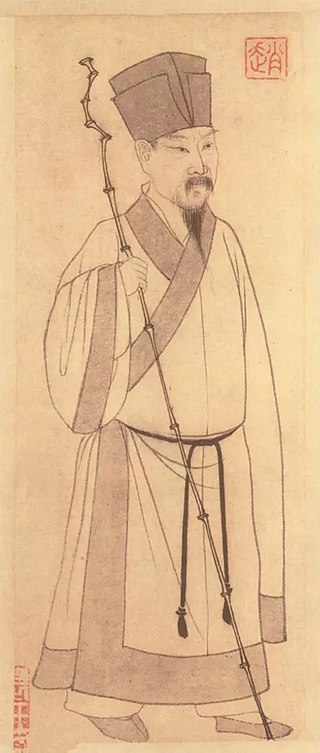
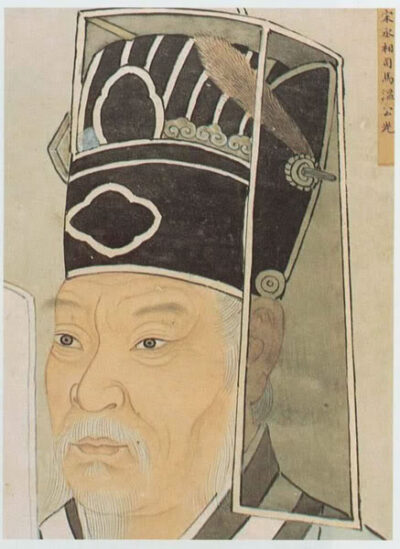
Warning: Undefined variable $comment_form_sns_tags in /home/ktsky/philosophy-kayak.com/public_html/wp-content/themes/shaper/comments.php on line 27